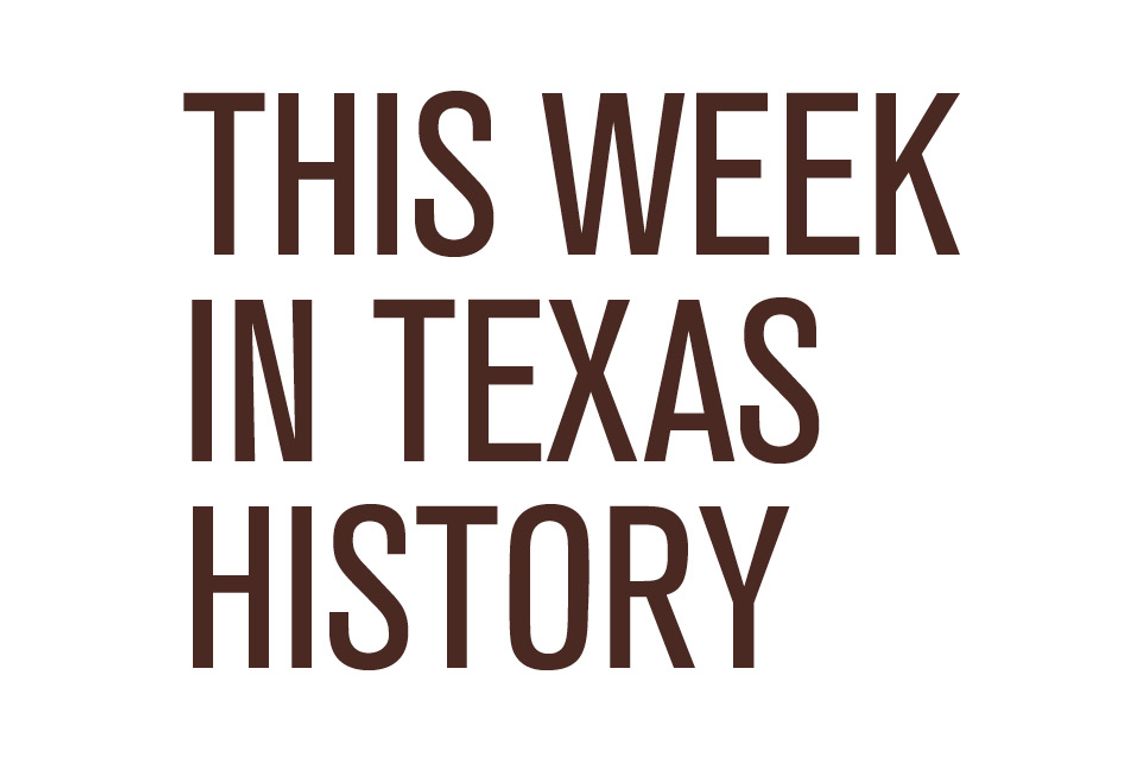Texas History by Bartee Haile
During the first week of April 1829, Sam Houston sent his teenaged bride home to mother, decided to resign as governor of Tennessee and prepared for a self-imposed exile among his boyhood friends, the Cherokees.
Twenty years earlier, the 16 year old had rebelled against his older brothers’ plans for his future, which included clerking in a general store, by running away. He found refuge among the neighboring Cherokees, who welcomed the headstrong youth with open arms and named him “The Raven.”
Chief Ooleteka, called John Jolly by the whites, filled the painful void created three years earlier by the death of Houston’s father. At Ooleteka’s knee the white boy learned the language, customs and values of the Cherokees while developing what one historian would describe as “a deep sympathy for the Indian character.”
Attracted to military service by the War of 1812, Houston left his adopted people to enlist in the U.S. Army. Soon after his promotion to first lieutenant in 1817, he eagerly accepted an appointment as subagent to the Cherokees. The dream assignment not only enabled him to enjoy once again the company of his old friends but also to serve as their champion.
In a futile attempt to forestall the forced relocation of the Cherokees, Houston accompanied a tribal delegation to Washington, D.C. Secretary of War John C. Calhoun axed the appeal and spent the rest of the meeting upbraiding the officer for appearing in Indian dress. Infuriated by the vicious tongue-lashing as well as the shabby treatment of the Cherokees, Houston resigned his commission.
The Cherokees and The Raven soon went their separate ways: Chief Ooleteka and his clan to the Arkansas Territory and Houston to congress and the statehouse as the rising star of Tennessee politics. Over the next decade, the ambitious politician lost touch with his surrogate father.
Then in April 1829, in the scandalous aftermath of his two-month marriage to a 19 year old debutante, Houston abruptly quit as governor of Tennessee. Turning to the only people he trusted, he joined the Cherokees in their Arkansas exile.
Chief Ooleteka used his influence to obtain tribal citizenship for his troubled foster son. Houston ran a trading post, which provided him with an unlimited supply of whiskey, and in the summer of 1830 began living as man and wife with a Cherokee woman named Tiana Rogers.
But the peace of mind Houston so desperately sought in the back-to-nature existence eluded him. As he often did in times of stress and depression, he embraced the private demon that never left his side. For days on end, he rarely drew a sober breath.
Oblivious to the toll the alcohol was taking on his mind, body and reputation, Houston campaigned for a seat on the Cherokee council. Supremely confident of victory in the tribal elections, his humiliating defeat caught him completely by surprise. Rather than accept the blame for his repudiation at the polls, he accused the Cherokees of betrayal.
When Chief Ooleteka tried to explain that his drinking might have had something to do with the embarrassing loss, Houston struck his benefactor. Outraged braves intervened on the old man’s behalf and beat his attacker senseless. Although a contrite Houston apologized to the Cherokee council for his misconduct, things were never the same after that.
Not long after Houston came to Texas in December 1832, he was befriended by a separate band of Cherokees. Under the leadership of Chief Bowles, they had migrated in 1820 from the Indian Territory to the eastern part of the Spanish province. Before and after the Lone Star Revolution, the Cherokee-speaking white man was their frequent guest.
At his inauguration in December 1838, President Mirabeau Lamar announced a get-tough policy toward all Indians. Declaring there was no place for them in the Republic of Texas, he warned ominously they must go “peaceably if they would, forcibly if they must.”
Former President Houston was in Tennessee, when eviction papers were served on the Cherokees. Chief Bowles negotiated a delay for the corn harvest and modest compensation for expected property losses but refused to accept an armed escort out of the country. Scores of Cherokees, including their chief, were killed in a series of clashes with Texas troops, and the survivors were driven north into the Indian Territory.
Houston repeatedly took the floor of the Republic Congress in December 1839 to condemn in the harshest possible terms the bloody expulsion. When Chief Bowles’ hat was provocatively presented to him as a souvenir, he erupted in a scathing hour and a half tirade.
“When did the white man ever respect the rights of the Indian or avarice lose its grasp?” roared The Raven. Recounting the Indian’s warm welcome of the European, he noted with great emotion, “Too late he found he had nursed a viper in his bosom, and gloomy and dark has been the history of the red man since that unfortunate day.”
“Texas Entertainers: Lone Stars in Profile” is full of talented Texans who deserve a curtain call. Order your copy by mailing a check for $24.00 to Bartee Haile, P.O. Box 130011, Spring, TX 77393.










